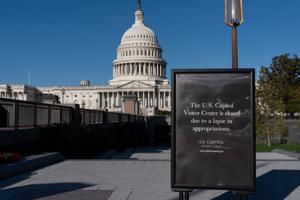Senate Democrats are set to reject a stopgap spending bill for the tenth time on Thursday, continuing their firm stance on health care benefits. The Democrats insist that Congress must address health care subsidies before they will support any funding measures aimed at reopening the government. This ongoing impasse has become a daily occurrence in Congress, highlighting the challenges facing lawmakers as the standoff stretches into its third week.
The situation has resulted in significant consequences, including the furlough of hundreds of thousands of federal workers and uncertainty for many more who rely on government paychecks. With House Republicans having left Washington, the Senate remains essentially paralyzed. Democrats are adamant that they will not budge until there is a guarantee for the extension of subsidies for health plans under the Affordable Care Act marketplaces.
According to the Democrats, failure to secure these subsidies will lead to substantial premium increases for millions of Americans who purchase their own health insurance, including small business owners, farmers, and independent contractors. They are particularly concerned with a looming November 1 deadline in most states, anticipating that voters will pressure Republicans to engage in serious negotiations.
In a related development, American cruise operators are reevaluating their itineraries due to new port fees imposed by China. Oceania Cruises, part of Norwegian Cruise Line Holdings, announced on Thursday that it is revising select routes in Asia and will no longer include stops at mainland Chinese ports. This decision follows China’s introduction of retaliatory fees on American-owned or -operated vessels, which took effect this week.
The new fees, set at 400 yuan ($56) per net ton for each voyage docking at Chinese ports, were implemented in response to similar charges imposed by the United States on Chinese ships. An Oceania Cruises spokesperson stated, “Ships can no longer effectively visit mainland Chinese ports.” The spokesperson expressed disappointment regarding the necessary changes but reaffirmed the company’s commitment to providing guests with exceptional experiences through alternative itineraries.
As both political and business landscapes grapple with these challenges, the impact on everyday lives remains significant. The unfolding events in Congress and the cruise industry underscore the interconnected nature of policy decisions and economic realities.
